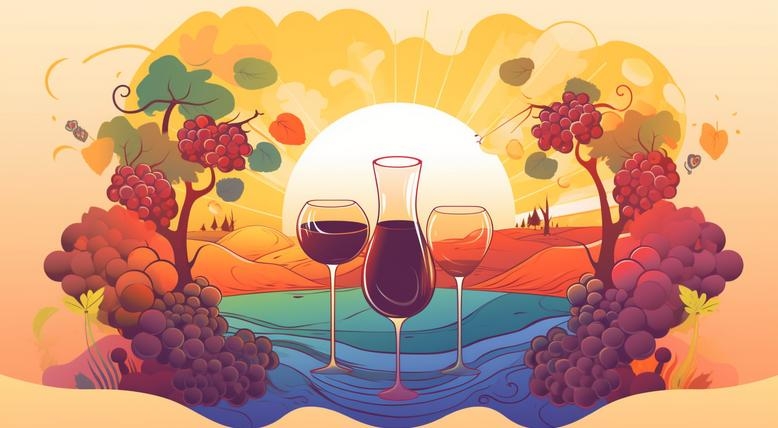Biodynamic Wines: Understanding the Philosophy

Where Wine Meets Cosmic PhilosophyImagine a world where your glass of wine isn't just a drink but a philosophical debate delivered in a bottle. Welcome to the captivating realm of biodynamic wines, where every sip takes you on an adventure through soil, stars, and, quite possibly, the spirit of a long-gone vineyard gnome whispering secrets to the grapevines. Biodynamic winemaking isn’t just about organic practices; it’s a holistic approach that includes cosmic rhythms and the mysterious ways of nature. What Does Biodynamic Mean Anyway?Biodynamic wine production is like the hipster cousin of organic wines, with a flair for the dramatic. Developed by Rudolf Steiner in the early 20th century, it’s founded on the belief that a vineyard is an interconnected ecosystem. The soil, plants, animals, and cosmic forces must get along like a well-rehearsed improv comedy troupe. It goes beyond avoiding synthetic pesticides and fertilizers; it’s about embracing the quirky dance of growing grapes while involving everything from lunar phases to astrological calendars. Steiner believed that the best wines are those that are nurtured in harmony with natural rhythms. So, how do these winemakers ensure their grapes have a well-rounded worldview? They employ techniques that may sound like they were designed by a group of well-meaning wizards in a wine cellar. Some of the enchanting practices involve using special compost preparations made from herbs and minerals. Imagine burying cow horns filled with manure, then digging them up later for magical fertilization. If nothing else, it gives a whole new meaning to “from farm to table.”Regenerative Agriculture: Not Just a BuzzwordBiodynamic practices firmly root themselves in regenerative agriculture — think of it as Mother Nature’s way of hitting the reset button on soil health. The goal isn’t just to grow grapes but to improve the land and biodiversity for years to come. Essential principles of regenerative agriculture include: - Soil health: It’s like upgrading your garden’s gym membership.
- Water conservation: Because nobody wants to see a vineyard turn into a giant raisin.
- Biodiversity: Promoting a cornucopia of plants, insects, and animals, all working together like a nature-themed buddy cop movie.
By focusing on these areas, biodynamic vineyards aim to create a self-sustaining system that produces high-quality grapes while giving Mother Earth a high-five. The wine produced is not just a product; it’s a living entity reflecting the land, weather, and, dare we say, magical forces.The Cosmic Connection: Moon Phases and CompostIf you think looking at a calendar is only for accounting, think again. Biodynamic winemakers often consult astrological calendars to determine the best times for planting, pruning, and harvesting. Yes, you read that correctly: the moons, stars, and perhaps Jupiter in retrograde can impact when a grape is ready for its big debut. Planting on a waxing moon? Sure, that’s supposed to encourage growth. Harvesting during a waning moon? That’s reserved for the grapes that aim to focus on their finesse. You might wonder how all of this affects flavor. It’s a bit like attending a college seminar after a three-course meal — a little too intellectual, but it might just open your eyes to something new.So, Why Should You Care?While it might be easy to roll your eyes at the string of practices that can sound like mystical rituals, there are palpable benefits to biodynamic wines. Not only do they often taste fantastic, showcasing the unique characteristics of their terroir, but they also promote more sustainable practices that help the planet. And you can sip with pride, knowing you’re supporting a method that respects the environment — sort of like being on a group text where everyone agrees to make better choices.When you pop open a bottle of biodynamic wine, you're not just indulging in a drink; you're participating in a philosophy that sees nature as a dance partner rather than a foe. Time to Wine DownUnderstanding biodynamic wines is like embarking on a journey through a vineyard that’s driven by a sense of purpose. It’s less about following rules and more about nurturing a philosophy that respects nature in all its eccentricities. So, the next time you raise your glass, consider it not just a drink but an invitation to join the conversation with the universe, one delightful sip at a time. After all, if grapes can converse with the cosmos, why shouldn’t we be able to enjoy a little celestial chatter too?
|
|







